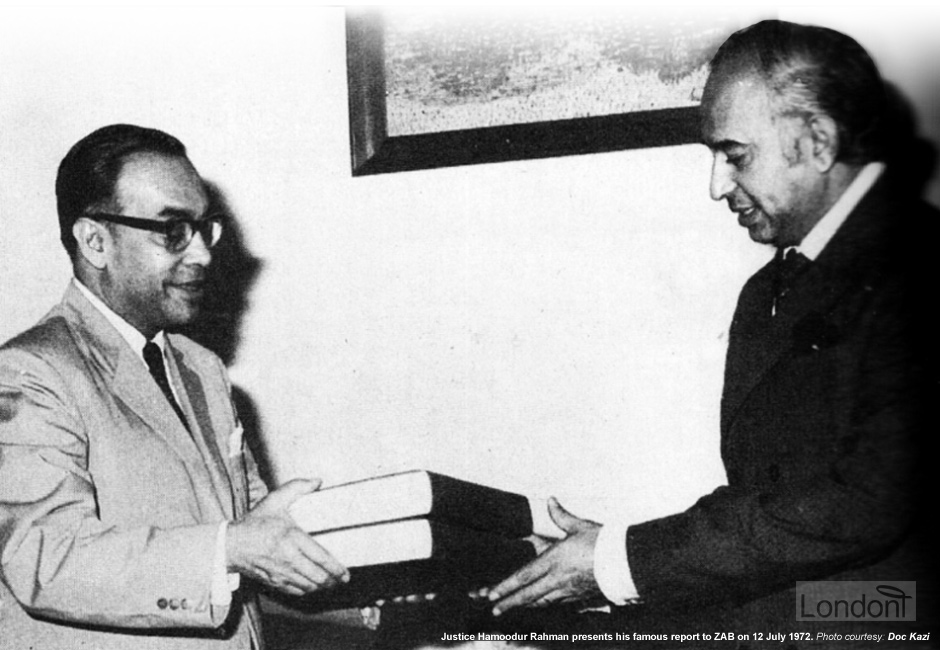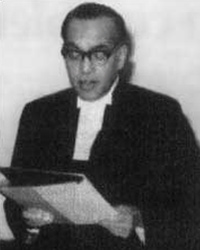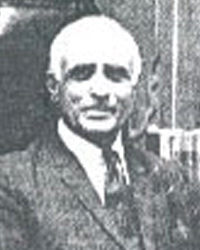
Hamoodur Rahman Commission
Last updated: 5 October 2017 From the section 1971 Muktijuddho
The East Pakistan debacle prompted Pakistan Government, now led by Zulfikar Ali Bhutto, to investigate the Bangladesh atrocities and the military and political causes of the defeat. The result was the 'Hamoodur Rahman Commission' headed by Chief Justice of the Supreme Court of Pakistan, Hamoodur Rahman, ironically a Bengali. He was supported by Chief Justice Sheikh Anwarul Haq and Chief Justice Tufail Ali Abdul Rehman.
The first report in July 1972 was regarded as 'provisional' as they were not able to interview many key people who were at that time prisoners of war in India. The inquiry was reopened in 1974 and a final report was submitted on the 23 October 1974.
Key finding of the Hamoodur Rahman Commission report were:
- Bengali civilian casualties were 26,000 and not 3 million as claimed by Bangladesh.
- Pakistani Army carried out senseless and wanton arson, killings in the countryside, killing of intellectuals and professionals and burying them in mass graves, killing of Bengali Officers and soldiers on the pretence of quelling their rebellion, killing East Pakistani civilian officers, businessmen and industrialists, raping a large number of East Pakistani women as a deliberate act of revenge, retaliation and torture, and deliberate killing of members of the Hindu minority.
- Awami League 'militants' had butchered large number of West Pakistanis and Biharis.
- Military's continued involvement in running the government after 1958 was one reason for the corruption and ineffectiveness of senior officers.
- Because of corruption resulting from military government involvement, the lust for wine and women and greed for lands and houses, a large number of senior responsible army officers, particularly those occupying the highest positions, had lost not only their will to fight but also their professional competence.
- General Yahya Khan permitted and even instigated the premature surrender. He should be publicly tried along with other senior military colleagues, including General A. A. K. Niazi.
- General Yahya Khan was a womanizer and alcoholic.
Firm and proper action would not only satisfy the nation's demand for punishment where it is deserved, but would also ensure against any future recurrence of the kind of shameful conduct displayed during the 1971 war.
President Bhutto classified the report and later claimed it was 'lost'.
Hamoodur Rahman Commission Report was carried out under the post-1971 Zulfiqar Ali Bhutto regime, who had every stake in presenting the March negotiation breakdown (which he largely engineered) as the fault of the Bengalis.
Naeem Mohaiemen, Writer & visual artist
But in 2000, Pakistan Media aired the news that the report was actually stored at the Generals Headquarter (GHQ), the Combatant headquarter of Pakistan Army. Part of the report were leaked and published in Indian magazine India Today in August 2000 prompting Bangladesh government to request full copy of the report - 29 years after the original one was written. However, the report was finally declassified in Pakistan by President Musharraf's Military government in December 2000.
We do not plan to take action on the basis of events that took place nearly 30 years ago.



